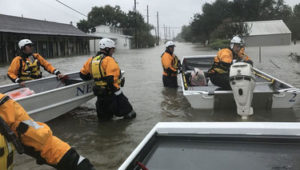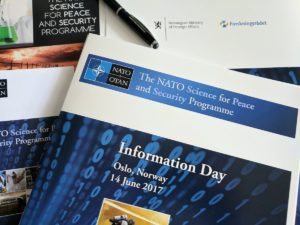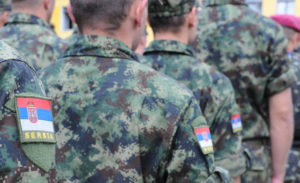Tuzla Canton, Bosnia and Herzegovina was the venue of this year’s Euro-Atlantic Disaster Response Coordination Centre (EADRCC). The NATO field exercise is dedicated towards the eradication of the dire consequences of disaster.

According to the Fena agency, the exercise tagged “BOSNIA AND HERCEGOVINA 2017” will involve 1,300 people. Out of the total number, about 500 will come from 30 countries including representatives from Croatia and Serbia. Other participants in the exercise include those from Armenia, Azerbaijan, European Union, Iraq, Japan, Pakistan, and the United Nations.
The event presented a common ground to unite Bosnia and Croatia following the recent scandals that have rocked the two neighboring nations. This is a rare opportunity given to the host nation, Bosnia and Herzegovina who have consistently declared military neutrality rather than join NATO.
Mr. Dragan Mektic, the Minister of Security of Bosnia and Herzegovina and Mr. Sorin Ducarus, the NATO Assistant Secretary General for Emerging Security Challenges, declared the exercise open. In his opening remark, Mr. Ducaru said,
“This exercise will help improve international cooperation in countries ranging from Spin to Serbia, from Bulgaria to Belarus and from Croatia to Pakistan. It will give responders the opportunity to test state-of-the-art technologies in relief operations. In short, this exercise will demonstrate the real value of NATO’s network of partnerships.”
Source: NATO

The five days event saw the participants from NATO and its partner countries test the interoperability and international cooperation in disaster response including in areas like water rescue, biological, chemical, nuclear, and radiological detection, decontamination and protection.
The exercise also gave NATO Science for Peace (SPS) Programme the opportunity to test and employ products of its science sponsored projects. Some of the projects include the “Next Generation Incident Command System,” projects on capacity building in emergency response field for Western Balkans, and a telemedicine system geared to enhance medical support in areas hit by disaster by engaging medical professionals from participating nations remotely.

This is the first time that Bosnia and Herzegovina will be hosting the exercise even though it is the 17th to be organized by the Euro-Atlantic Disaster Coordination Center (EADRCC) since 2000 when it first started. The exercise also drew the attention and partnership of numerous international organizations and NGOs including the European Union, the Red Cross Society of Bosnia and Herzegovina, the United Nations Office for the Coordination of Humanitarian Affairs (OCHA), and the Save the Children NGO.
Dragan Mektic was pleased with the representatives from Serbia (the country that has been slated to host the event in 2018) and those from Croatia. Mektic stressed that during times of disaster, the neighboring countries are usually the first to offer aid to each other. Mektic dished out advice to those who still have reservations for the exercise.
“Those who have reservations about this exercise will miss a great chance to come up with new insights that can help them protect citizens, and yet, they have put politics front and center. … Politics have interfered in the organization of this exercise… in this case that should not happen, because it is about saving people and property.”
Source: B92
The Minister of Security of Bosnia and Herzegovina further stressed that the exercise will hint the participating nations on new ways to fight disaster.
“This is an opportunity to learn about ways of fighting disasters, as well as ways to eliminate the consequences of natural disasters, and to practice technical achievements in these areas and so that we could gain new skills and knowledge.”
Source: European Western Balkans
